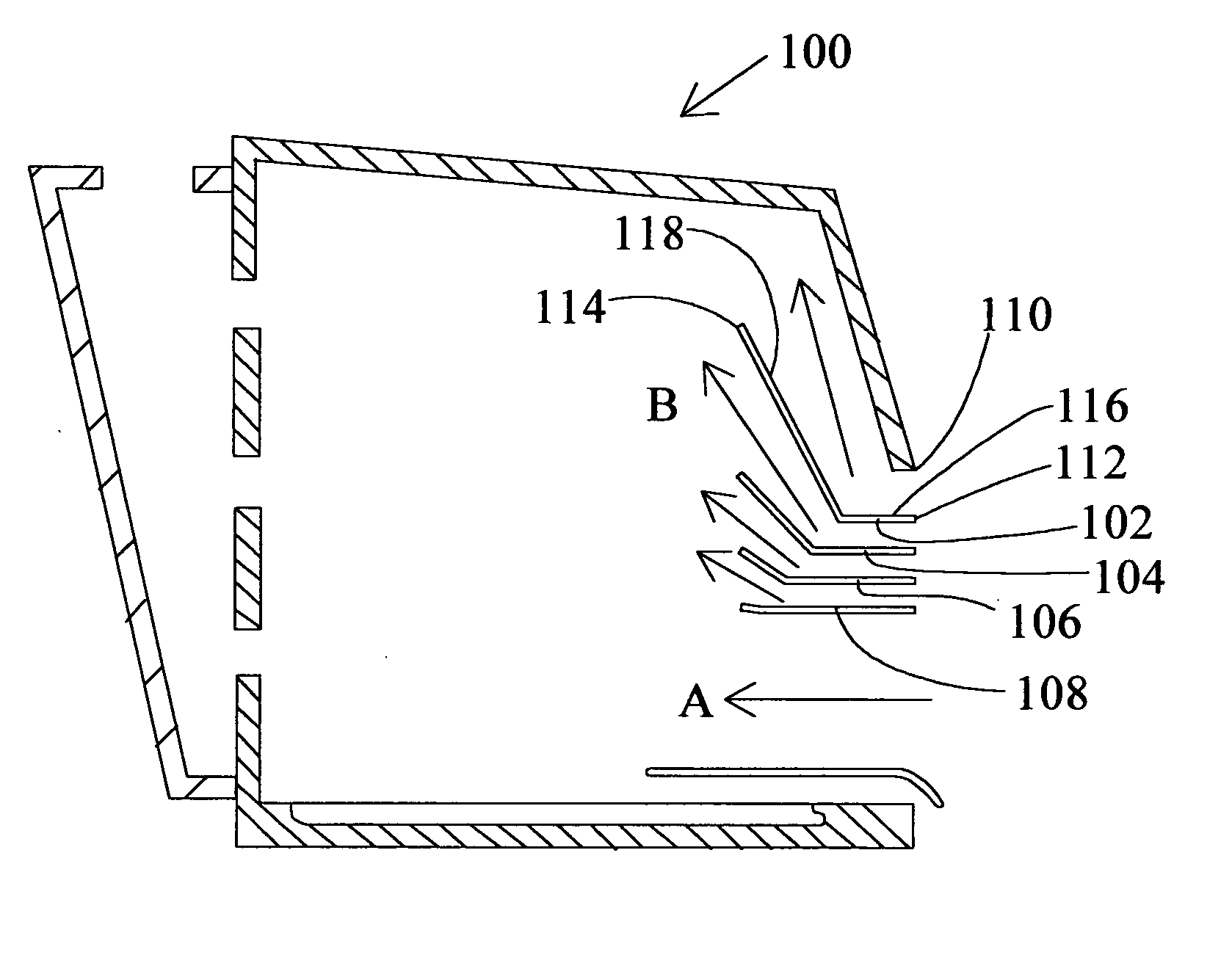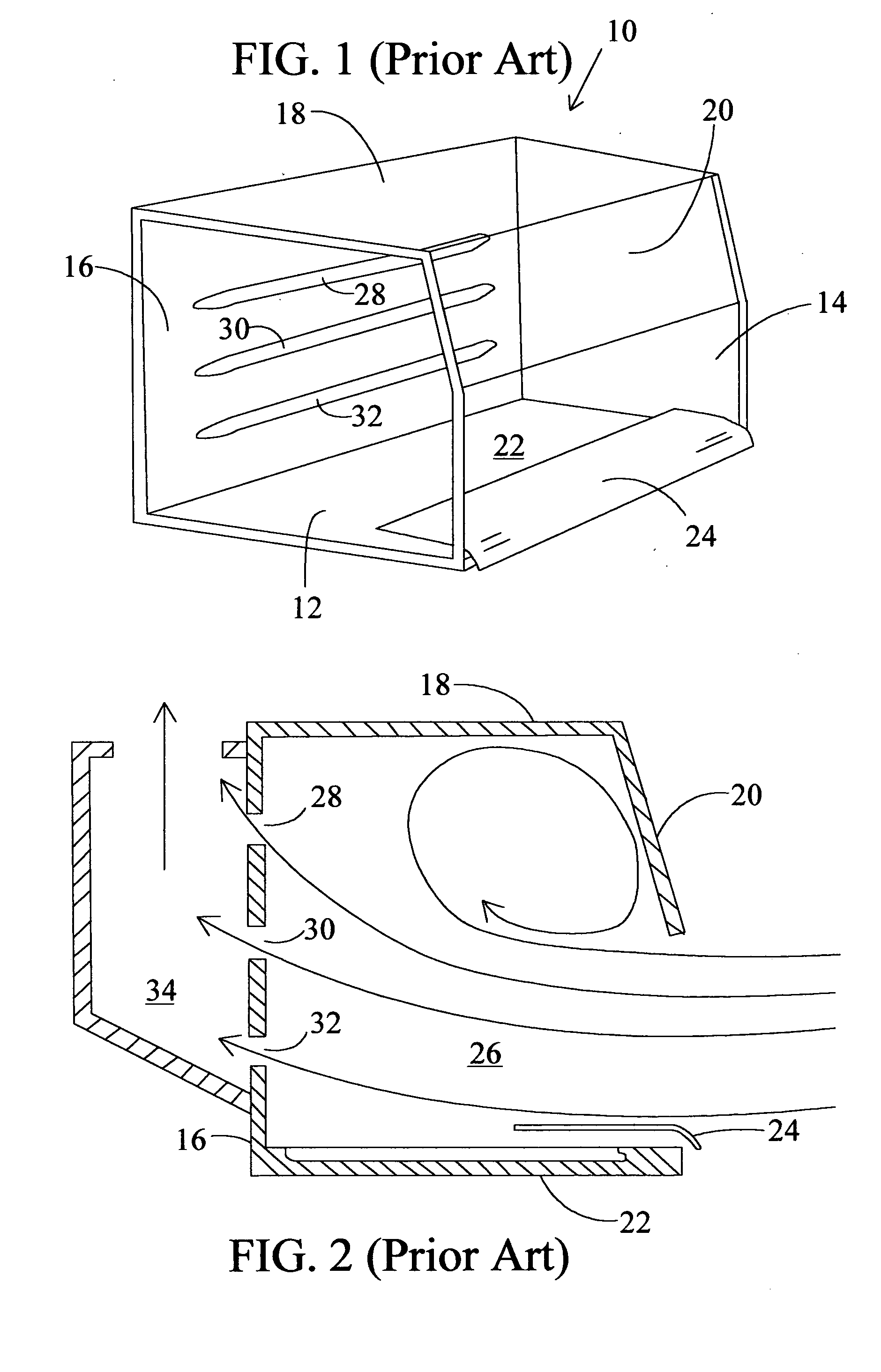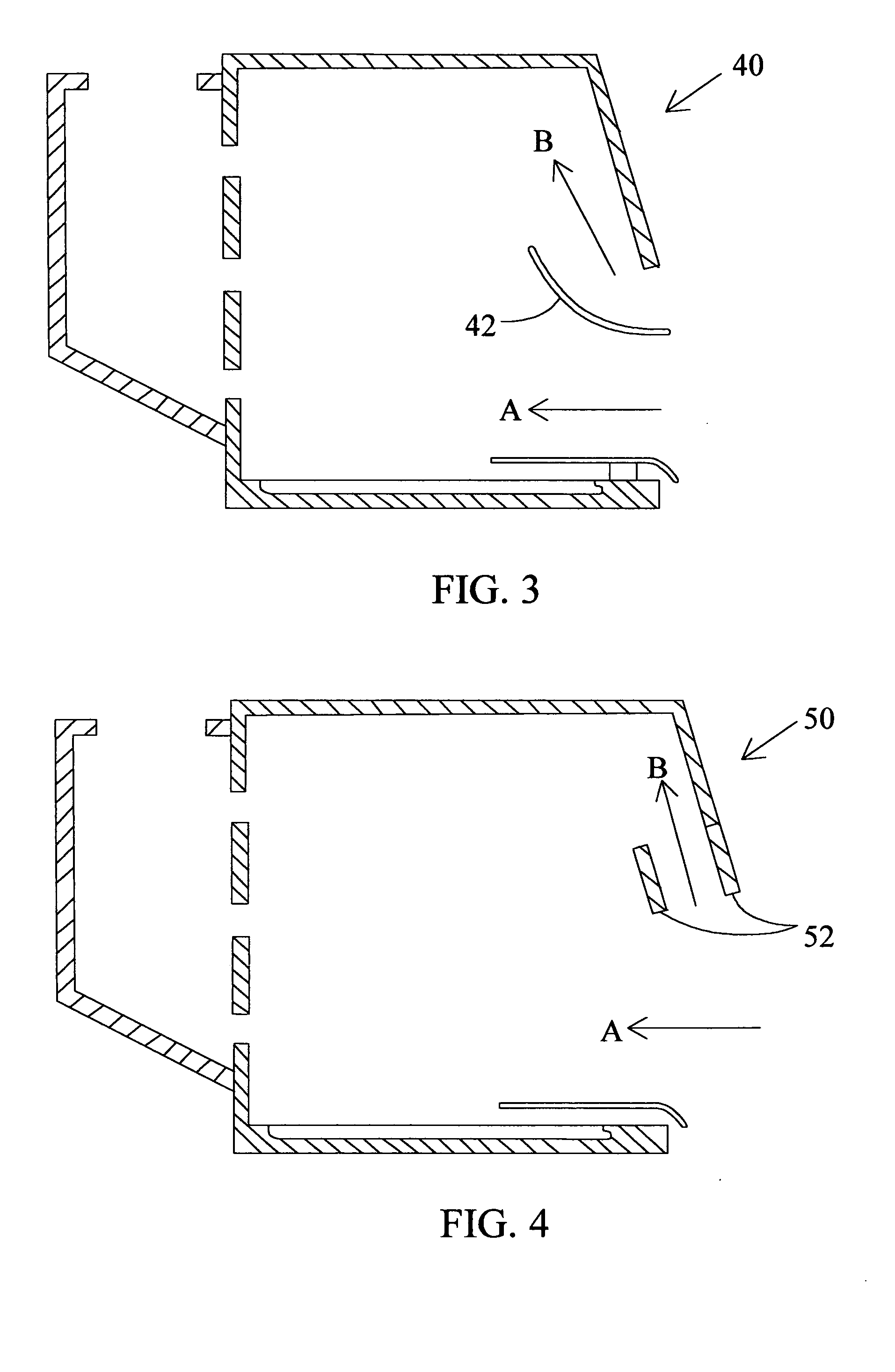Turbulence-free laboratory safety enclosure
a laboratory and fume hood technology, applied in ventilation systems, heating types, stoves or ranges, etc., can solve problems such as inability to know the exact solution and complex equations, and achieve the effect of reducing the slope angle, eliminating turbulence, and improving turbulen
- Summary
- Abstract
- Description
- Claims
- Application Information
AI Technical Summary
Benefits of technology
Problems solved by technology
Method used
Image
Examples
Embodiment Construction
[0042] As best illustrated in FIGS. 1 and 2, enclosure 10 is comprised of spaced, parallel side walls 12 and 14; a rear wall 16; and an upper wall formed by a top wall 18 and a front wall 20, extending downwardly from the front edge of top wall 18. Enclosure 10 also includes a floor or bottom wall 22. A bottom airfoil 24 is mounted above the front edge of bottom wall 22 and is configured to enhance laminar airflow over bottom wall 22.
[0043] Walls 12-22 together define a work chamber 26 within which material is manipulated. The front edges of walls 12, 14, and 20, along with the leading edge of airfoil 24 define an operator access opening into chamber 26. Rear wall 16 includes horizontal, spaced openings 28, 30 and 32 to allow air to flow from chamber 26 into a plenum 34 through which the air is exhausted into an exhaust conduit (not shown).
[0044] Computer simulation and smoke tests performed on the fume hood of FIG. 1 have generated data used to analyze the airflow distribution sh...
PUM
 Login to View More
Login to View More Abstract
Description
Claims
Application Information
 Login to View More
Login to View More - R&D
- Intellectual Property
- Life Sciences
- Materials
- Tech Scout
- Unparalleled Data Quality
- Higher Quality Content
- 60% Fewer Hallucinations
Browse by: Latest US Patents, China's latest patents, Technical Efficacy Thesaurus, Application Domain, Technology Topic, Popular Technical Reports.
© 2025 PatSnap. All rights reserved.Legal|Privacy policy|Modern Slavery Act Transparency Statement|Sitemap|About US| Contact US: help@patsnap.com



